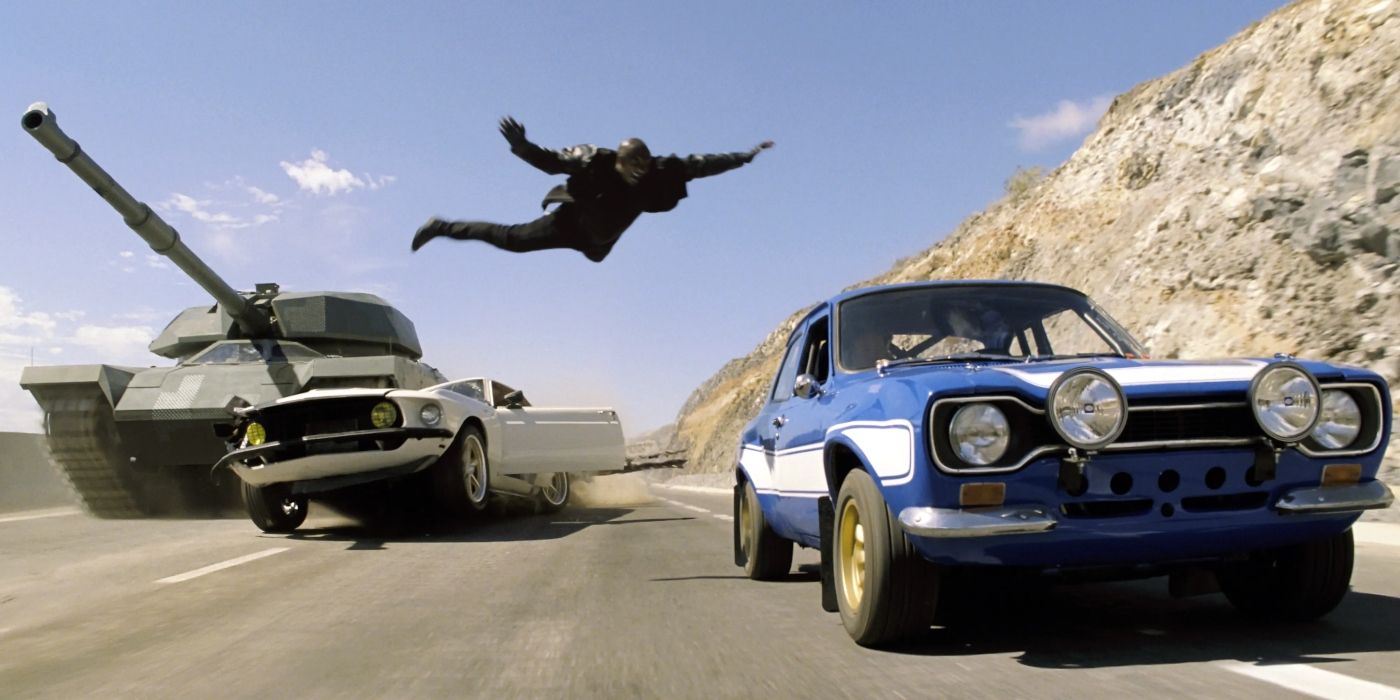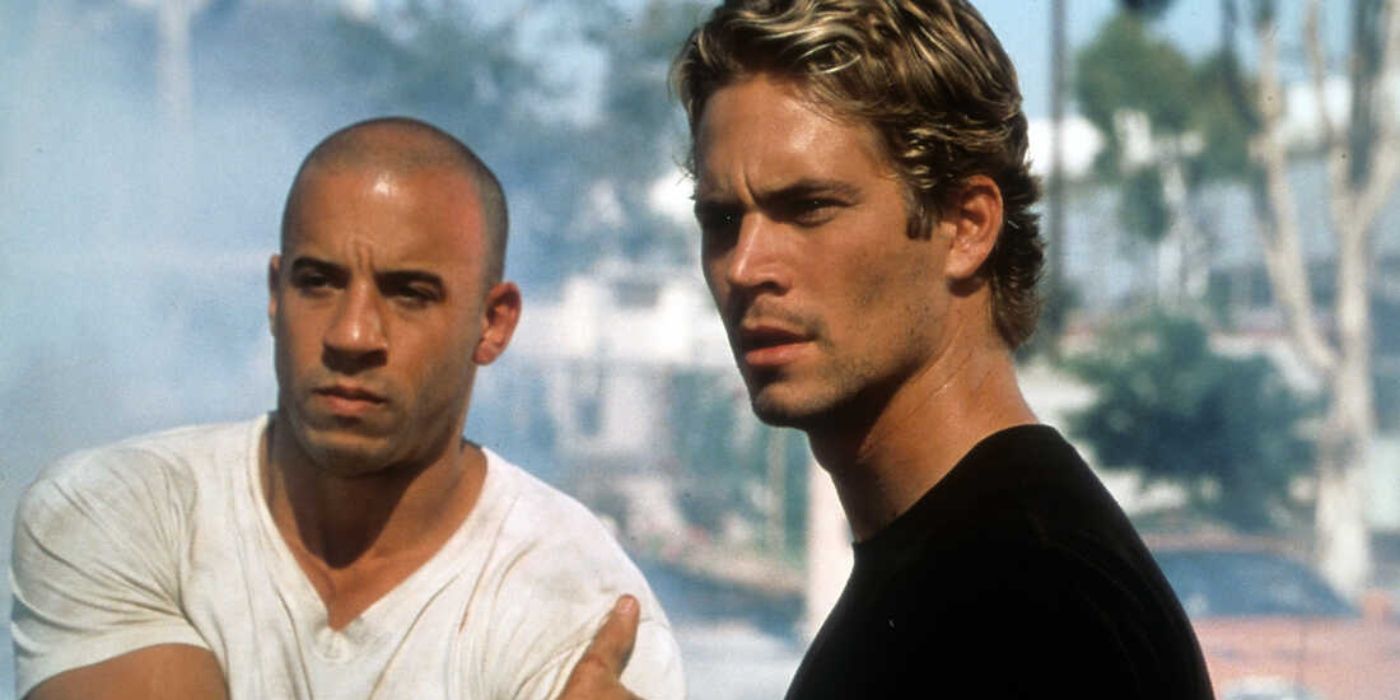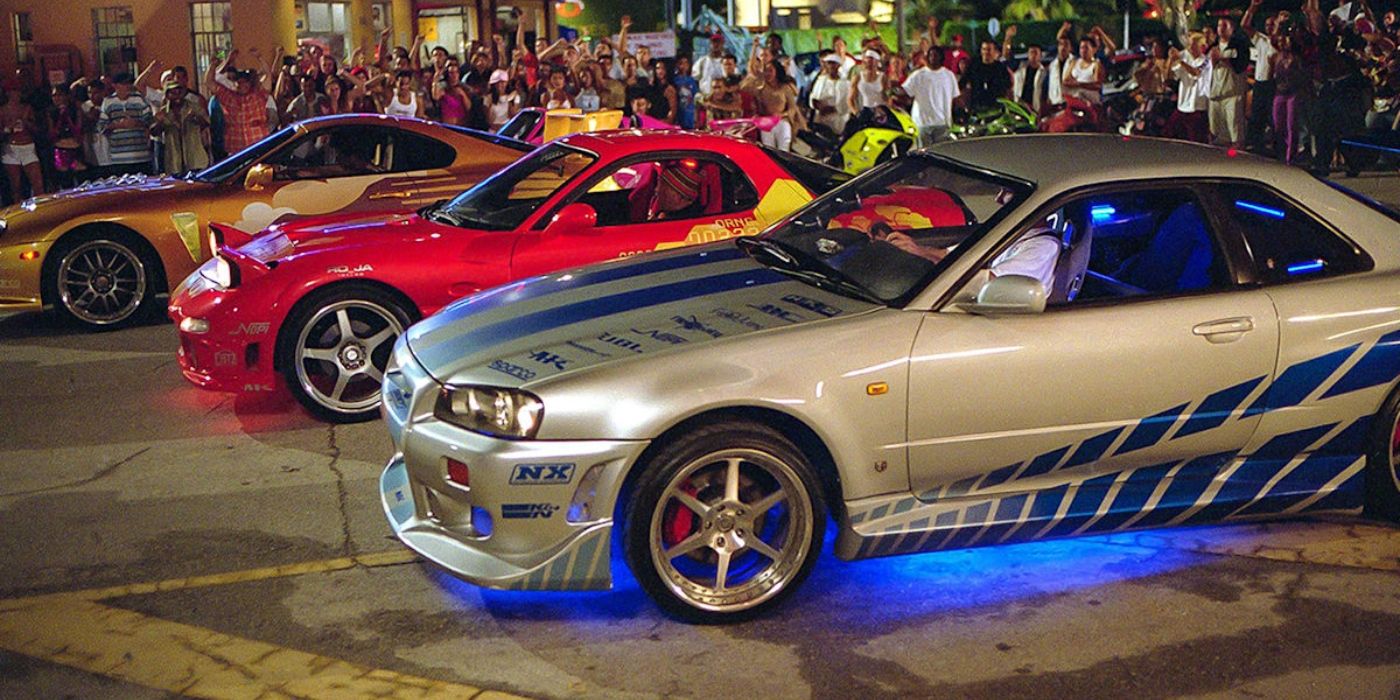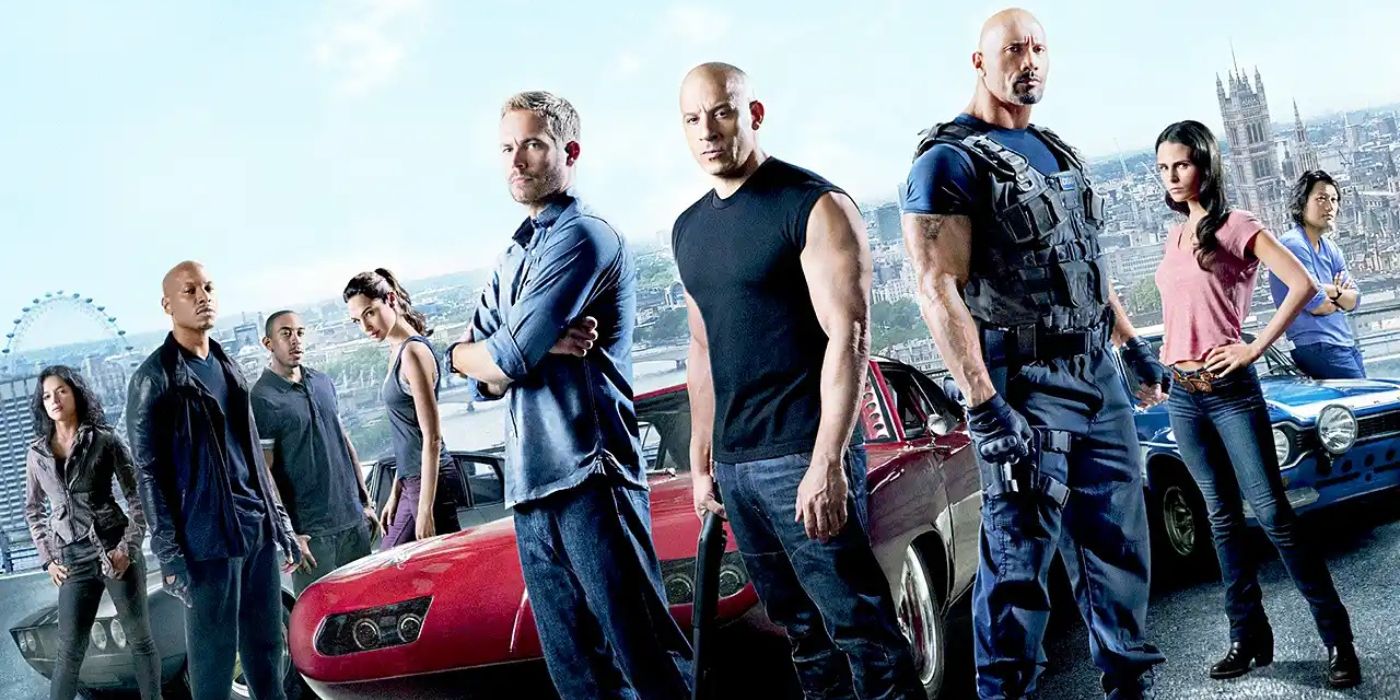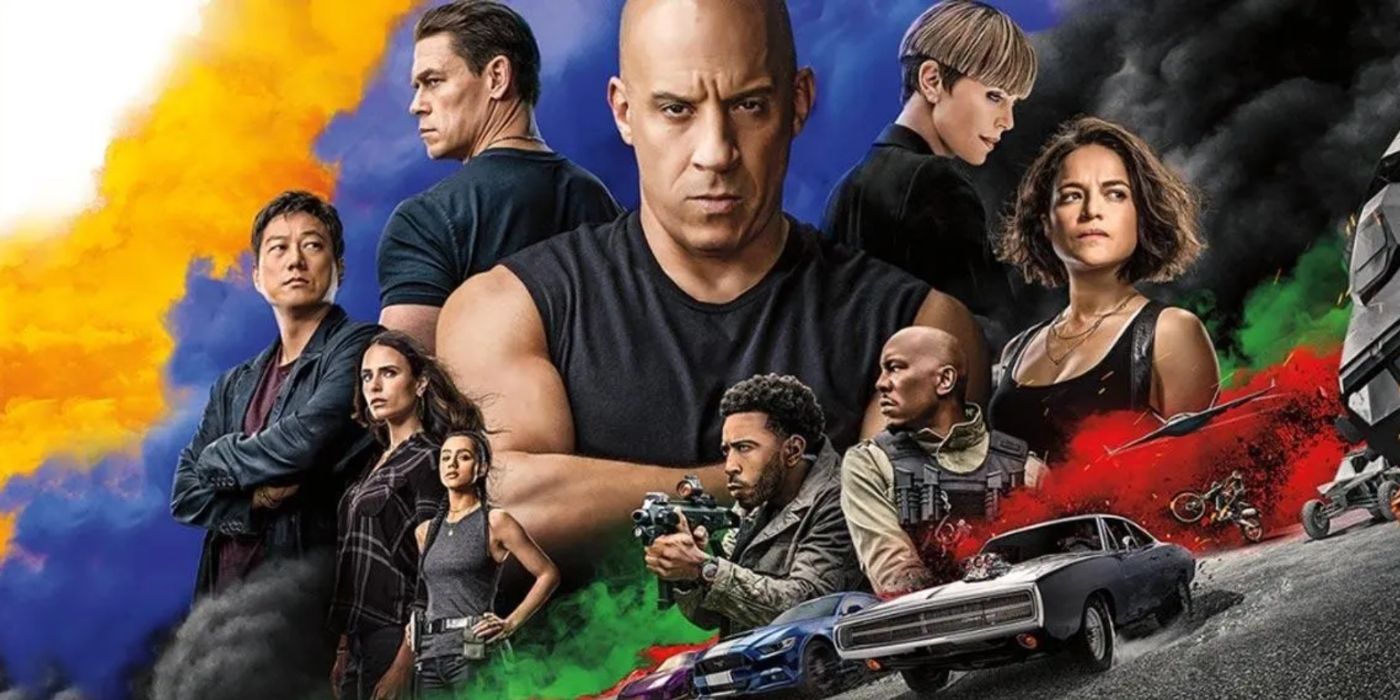Debuting in theaters over twenty years ago, the original The Fast & The Furious may have originally seemed like a throwaway summer blockbuster. Running with a premise similar to Point Break but relocated to the more diverse and car-heavy downtown Los Angeles, the film was a success at the time. But as the series has evolved into one of film's most bombastic and explosive series, it's only become more openly ridiculous, bizarre, and successful, growing to become a global phenomenon that sits in the top ten most successful film franchises of all time.
After exploring the origins of Star Wars and The Simpsons, Vice TV's Icons Unearthed is set to explore the early days and evolution of the series in their newest season. During an interview with CBR, The Toys That Make Us creator Brian Volk-Weiss discussed the history of The Fast & The Furious films, what makes this ridiculous series so special, and the moment that transformed a potentially throwaway action series into one of the biggest franchises in Hollywood history.
CBR: What made you want to focus on The Fast & The Furious as the latest subject of Icons Unearthed?
Brian Volk-Weiss: So, it's interesting. The original "mission statement" of Icons Unearthed was supposed to be a series [about] unearthing icons [and] what made them iconic. So we were, conservatively, the third-billionth people to make a documentary about Star Wars. Even though -- shockingly -- there were not that many documentaries about The Simpsons, we still were not the first. But The Fast and the Furious movies are now making over a billion dollars a film. Even the most recent one, which came out in the midst of COVID, did almost $800 million when every other movie that came out during that period was a disaster. And no one talks about them! I said to myself, we can't just be covering the obvious stuff. Let's dig into things that are huge, but [that] nobody knows anything about.
I am glad we did -- because I am now obsessed with The Fast & The Furious. It is an unbelievably unique situation, unlike any other movie, TV show, toy, or anything we've ever covered. It's so bizarre how it came together and even more bizarre how it started versus what it's become. They went into outer space with thirty heat tiles. I get that's ridiculous. Don't get me wrong, early in the latest film, F9, there's this insane conversation that 20 years ago would have been an SNL sketch. But they put it in the movie, where a couple of the leads of the film are literally talking about how they might be superheroes in disguise, and they're not aware of it. To me, that moment shows what makes these films special.
I never thought of this until I had to spend, you know, six months digging into it. But what they've done is they have found a way to embrace the shark instead of just jumping over it. Instead of them going into outer space, and [the audience being like] "This movie has lost its mind," they embrace it. The characters are saying, on camera, in the movie, "This is ridiculous. How the hell could a car get into outer space!?" If you watch the most recent James Bond film -- I love using James Bond to compare and contrast [with] The Fast & The Furious because it's the exact opposite. [James Bond] a very stable, logical franchise. Dr. No worked, and they repeated that formula for the following half-century.
With The Fast & The Furious, in almost every movie, there's some new insane variable they have to navigate. Imagine if Sean Connery became the creative lead of James Bond. Imagine if Sean Connery was involved with picking Daniel Craig. Like, there is no reason why Vin Diesel has all this power. Now, there is a reason, and the entire second episode is about that. But my point is, The Fast & The Furious does things as a franchise that shouldn't work and that don't make sense on paper. But they work. Why would we do The Fast & The Furious? Because nobody understands it. Like they may subconsciously get it, but they don't get the impact it's had.
Here's the perfect example of what I mean when I tell you even as this franchise is so successful, people don't get it. They don't get how big it is and how important it is. When we were interviewing Tyrese Gibson, I thought Tyrese made this really good point at the end of our interview. Tyrese was like, "You know, I make the movie. It's my second film. The movie comes out. I spent all this time working on the movie. I knew what I was doing. I know what I had signed up for. Everything was what it was. And then one day, the movie posters start coming out, and then the trailer comes out, then all this stuff happens. And I'm walking down the street, and I see the poster. I see my face, and I just stopped. I'm looking at the poster, and it suddenly hit me -- oh my god. There's one white guy next to two black guys, a Latina woman, and an Asian girl. When has there ever been a studio movie when the white guy is the minority on the poster?'
It just hit him like a ton of bricks, even though he knew everything that was going on while making the movie and while it was getting cast. It didn't even occur to him how groundbreaking this all was. Then he said, "When I did my first The Fast & The Furious movie, back in the day, they used to take black people off the posters in Europe because it would hurt ticket sales." He said that that happened on The Fast & The Furious too. But by Fast Five, not only was that not happening, but the majority of the people on the posters were not white. So here's this quote-unquote stupid movie that nobody pays attention to the way they do, like Erin Brockovich or Schindler's List, and it's literally slowly but surely improving our society. They get no credit for that. I know I'm talking about The Fast & The Furious, and I know I must sound insane. Talking about it improved our society, but it has.
He's right, though. It is one of the most broadly representative franchises in film right now, and that has been a big part of why it does so well.
Not to give away Tyrese's entire interview. But Tyrese said, "We're never gonna get an Oscar. We're never gonna get any awards other than special effects and sound design." But he said [that] he's done some independent movies that won awards and got tons and tons of press for being great that nobody's ever heard of and didn't move the needle. He's like, "When I was born, you didn't see black people on posters unless it was a black movie, usually made for black audiences." He remembers when he saw the poster for Action Jackson. "I'd never seen anything like that, and I stopped where I was standing and looked at it. Like, that's now normal.'
I'm not gonna sit here and say The Fast & The Furious changed the world. But they get no credit for helping it and improving it. I know what I sound like. But I was converted. [It's] beautiful nonsense that supports diversity, family, and loyalty. I'm not going to sit here and say, you know, Marvel doesn't do that kind of stuff. You can't compare The Fast & The Furious and Marvel. I mean, you really can't compare The Fast & The Furious to anything. But the point is, I feel that Marvel gets a ton of respect. I don't feel that The Fast & The Furious gets the same respect that Marvel does -- and it deserves it.
Looking back at the history of the franchise and how it has evolved over the years, is there any one moment that crystallized its transformation? When did it stop just being a series of movies and become something unique in the pop culture landscape?
My entire career is because of Star Wars. I'd be a lawyer or a dentist in Queens if it wasn't for Star Wars. I'm aware of everything with Star Wars that I consider to be of consequence. What I didn't understand was The Fast & The Furious. When I went into Star Wars, I was trying to find a way to do it differently from every other documentary that had ever been made. With The Fast & The Furious, I had the opposite issue. To direct the show properly, I needed a moment or something where I understood why it worked. I finally found it.
There were two moments, technically, but they were kind of the same thing. In 2 Fast, 2 Furious -- and to remind you, the co-lead of the first movie didn't come back. The director didn't come back. What should have been a throwaway failure of a film that you could argue shouldn't have been made ended up being made for less than $80 million, did a quarter billion, and led to what the series would become. But there was something very interesting that happened at the beginning of the movie. There was this huge stunt scene that was supposed to be shot in a residential neighborhood. The line producer got a call from the studio. And the studio said, "You guys are behind schedule [and] you're over-budget. I don't care what you do today. But you cannot spend another minute getting that scene. If you don't shoot it today, we're not shooting it." And John Singleton and the producers and everybody said, "Okay, we obviously don't have time to shoot this big stunt as written. How are we going to do this? We can't lose this story beat. Then they improvised what is, I think, one of the greatest moments in all of The Fast & The Furious.
I would argue it's one of the greatest moments in any car chase in film, and it set the tone for what The Fast & The Furious would become. It's the scene where when Paul Walker, Tyrese, Eva Mendez, and Devon Aoki [are] all driving down a street, and Paul Walker and Cole Hauser are staring at each other looking sideways driving 100 miles an hour down the street, not looking at what they were driving towards. These two dudes are staring at each other, not looking through the window. The two women are getting more and more and more scared. Obviously, they stop before they crash. But it was stressful watching it. And then, after all of that, I think it was Tyrese who said, "Oh, did Paul Walker do the gag where he's looking at you and not looking ahead?" Literally taking the gag out of the gag. They recognized early on that you had to kind of make fun of it.
In the second movie, thirty minutes into the film, they had an improvised car chase and an improvised line of dialogue that made the movie better. Now there are a million movies that have improvised dialogue. Very few films have improvised stunts that also recognize the absurdity of the situation on camera. To me, that's the moment where The Fast & The Furious went from being any old kind of movie to being something different and unique. Cut to Fast Five. There's a scene in the script [that] called for a car to jump over a train while it was moving. And there was a fight going on top of the train that this car jumps over. When they were shooting that scene, the scene of the car jumping over the train that was being shot in New Mexico... And when they get on top of the train, that was being filmed in Atlanta. By complete coincidence being filmed within the same week, simultaneously.
The people in New Mexico did the stunt, and completely by accident, 100% by accident, the car crashed into the train. In any other movie, the first phone call would have been to the insurance company and of course, to the studio saying, "Hey, everybody's safe, but we messed up the scene." Not The Fast & The Furious. On The Fast & The Furious, the people in New Mexico called the people in Atlanta, and they said, oh my god, you're not gonna believe our good luck. You know how we were supposed to jump over the train? We crashed into the train. So why don't you reshoot and rewrite the scene you're already shooting in Atlanta so that the car crashed into the train, then they got out of the car, and they had a fight inside the train?" And that's what they did! Can you imagine in a James Bond movie, they fuck up a stunt, and they go with it?
Do you think this series could have worked in any other era of filmmaking?
Well, here's the thing that's interesting about your question. They've been making these movies for 20 years. That's two generations of filmgoers. The first movie came out in 2001. Imagine our society, how it was in 2000 versus today. [The Fast & The Furious] has survived massive changes in our society, cultural changes, and financial changes. I mean, all that stuff with the evolution of CGI, the evolution of physical stunts, all of this stuff -- and they're doing better than they ever were. The budget for Fast 10 is more than the gross box office for some of these films. There aren't many movies you can say that about. There are four Universal Studios theme parks, and every single one of them has a Fast & The Furious attraction. There are spin-off films [and] a cartoon.
Another thing the movie gets no credit for is the massive, massively successful toy line it has. If you've never noticed this before, the next time you go to Target, go to the section that sells Hot Wheels. You probably never noticed it before. I never noticed it until I was working on the show. Hot Wheels has been around for over 50 years. Hot Wheels is 60% of the aisle. The Fast & The Furious is probably 30% of the aisle. Everybody knows Hot Wheels is big, so there's no surprise there. Nobody understands how big The Fast & The Furious is because when you see that aisle, you don't really think about it. But the fact is that you have Hot Wheels, which is at least half a century old, and then this kind of weird, stupid car movie that is almost catching up with Hot Wheels. That's all you got to know about how successful this franchise is and how they don't get credit for that success.
What has been the most surprising discovery about The Fast & The Furious that you've found?
I think it's easy to look at all of these movies and think, to some degree, it's just a dumb-ass movie. Universal is trying to fill its pipeline and put movies out. You can't own a distribution arm and not put movies out. So why not spend $20 million on a car film in 1999? Why not spend $80 million in 2003? Why not spend a quarter billion in 2022? It's easy to perceive these as throw-away films. From everybody we talked to -- we're talking about four or five dozen people that worked on the movies -- the sheer love and care and kindness that goes into making these movies, the thoughtfulness with the first movie up until the ninth movie is shocking.
They are putting so much love into these films. It's easy to look at that and be like, "Look at this dumb-ass movie. They're dodging washing machines from a giant magnet!" But the amount of time and energy that films spent trying to come up with something new to entertain the audience, that they then write the scene after spending staggering amounts of time trying to come up with something new. Then they film the scene. They literally build a machine with wires that pull the washing machines and the dryers through walls while the actors -- not stunt people, the actors -- are running through the debris, and the washing machines and dryers and the toasters and everything else are being thrown at them.
None of that had to happen. They could have written the first thing that came to mind. They could have shot that entire scene with CGI [or] they could have used stunt people. All of that could have been done quicker, and it would have been cheaper. God knows they probably could have saved $5 to $10 million, either not making that scene or making that scene a cheaper way. But instead of doing that, they came up with this crazy thing that cost a fortune to make, that tens of millions of people will never forget. And that shows you again -- Vin Diesel and everyone else, with all their wackiness, love these movies, and you can feel that love when you watch [them], even if it's a submarine coming through a frozen lake.
Icons Unearthed: Fast & Furious debuts Jan. 16 on Vice TV.

